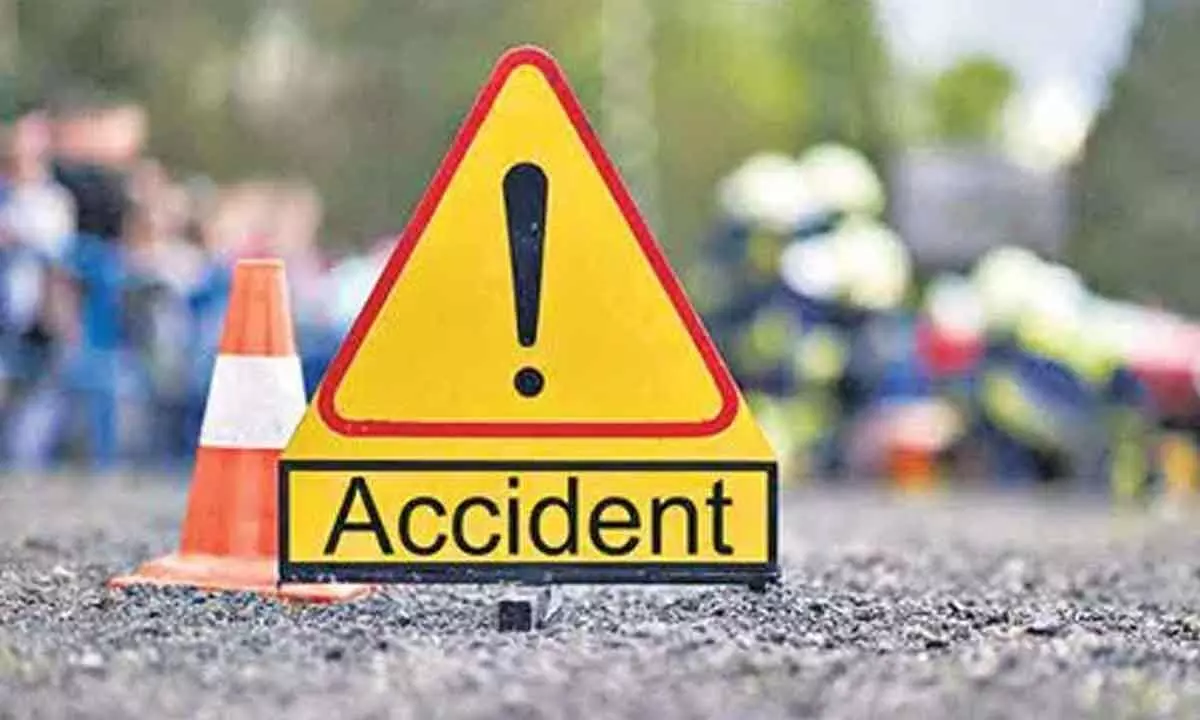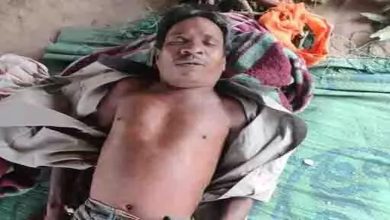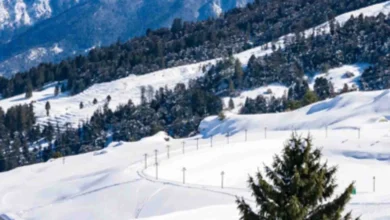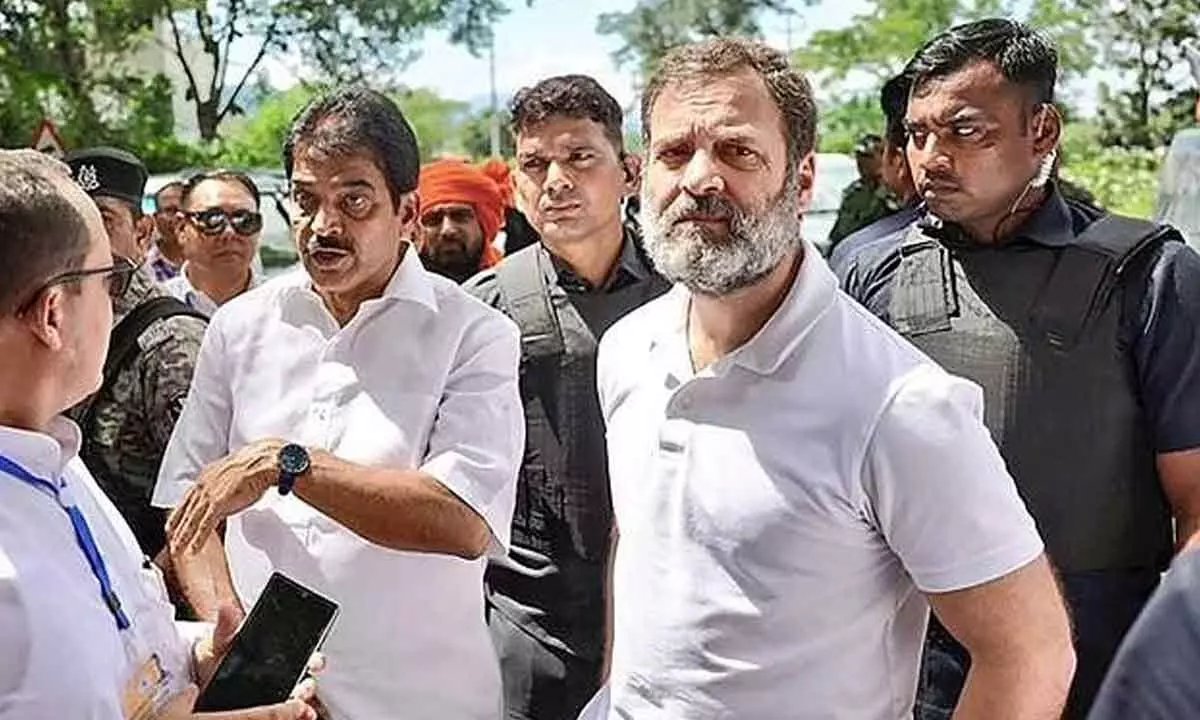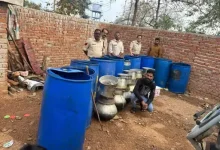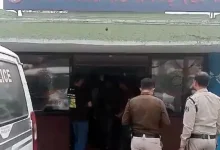Very few people reached Jammu village for Modi’s guarantee vehicle, Prime Minister disappointed

What is the population of your panchayat, Prime Minister Narendra Modi on Thursday asked Balveer Kaur, sarpanch of Rangpur, a village on the India-Pakistan border in Jammu.
“Two thousand, nine hundred and eighty voters; and the total population is 4,700,” Kaur was prompt.
“Commendable! You remember these numbers so well!” an impressed Modi said.
“Sir, I have learnt grassroots work from you and I don’t forget the details,” Kaur was prompt again.
Minutes later, though, Modi looked crestfallen as the feisty village head matter-of-factly said that only 250-300 people had assembled when the “Modi Ki Guarantee Wali Gadi” (Modi’s Guarantee Vehicle) reached the border village.
Kaur was one of five people the Prime Minister interacted with via videoconferencing on central welfare programmes, the webcast virtually turning into a general election campaign as he urged the respondents to spread awareness about the schemes’ benefits and give him their “blessings”. The event took place as people were voting in the Telangana Assembly elections.
To Kaur, an unhappy Modi said: “You said there are 4,700 people in your panchayat; then at least 4,000 people should have been there when the vehicle came to the village.”
The Modi’s Guarantee Vehicles are government vans travelling across the country as part of the Viksit Bharat Sankalp Yatra, meant to “saturate” welfare programmes by reaching those left out. But the drive is also being seen as an effort to launch a virtual election campaign at government expense.
Kaur hurriedly pleaded that this was the harvesting and sowing season and the farmers were out working in the fields — so she didn’t want to disturb them.
Modi was in no mood to accept the plea.
“Arre, aadha ghanta ke liye karna tha ji. Aise thode hi na chalta hai. Khana khane ke liye ghar aate hi hain na? Aise thode hi na chalta hai (Come on, it was only a matter of half an hour. This is not the way. They come home for lunch, don’t they? This is not the way),” the Prime Minister replied.
He quickly thanked Kaur and ended the videoconference.
“Okay, it was good talking to you. It’s nice that you are imparting awareness and inspiring the women. Congratulations,” Modi said before disconnecting.
The Modi government launched the Viksit Bharat Sankalp Yatra on November 15 from Khunti in Jharkhand, looking to cover 2.5 lakh gram panchayats and 3,700 urban local bodies in over 14,000 locations. The Yatra is scheduled to end on January 25.
Last month, the Election Commission stopped the government from undertaking the Yatra in the five poll-bound states after receiving complaints that cited the model code of conduct.
During Thursday’s interactions with the five handpicked beneficiaries, the Prime Minister fervently urged them to visit nearby villages and educate people to avail the benefits of “Modi’s guarantee”.
He stressed the slogan “Modi ki guarantee yani guarantee ki puri hone ki guarantee (Modi’s guarantee means a guarantee for the fulfilment of the guarantee)”.
The slogan appears likely to become the catchline of the BJP’s 2024 poll campaign.
Kaur was the fifth and last respondent. The first was Sonachand Mishra from Deoghar in Jharkhand, a beneficiary of the Jan Ausadhi programme under which the government has set up shops that sell medicines at low costs.
To a question from Modi, Mishra said his monthly medicine bill used to run up to Rs 12,000-13,000 but had fallen in the last two years to Rs 3,000-3,500.
Sounding excited, Modi encouraged him to put up a board at his pakora shop advertising the benefits of the Jan Ausadhi shops.
“You (Mishra) are pocketing around Rs 10,000 each month. That kind of money you may not be earning from your pakora shop. Modiji has saved Rs 10,000 by making medicines cheap. You should tell others about this,” the Prime Minister said.
Mishra promised to do so.
Lakar Paleng from Arunachal Pradesh told Modi that he had got a concrete house built under the Prime Minister’s housing scheme thanks to the “kripa” (compassion) of the Centre and the state government, and felt indebted.
Since he had received so much benefit, Modi asked, would he give his “ashirvad” (blessings), along with those of other villagers, to him?
Paleng replied: “Ji, Sir.”
Modi urged him to form five teams and visit five villages to spread awareness about government schemes and the Modi’s Guarantee Vehicle.











